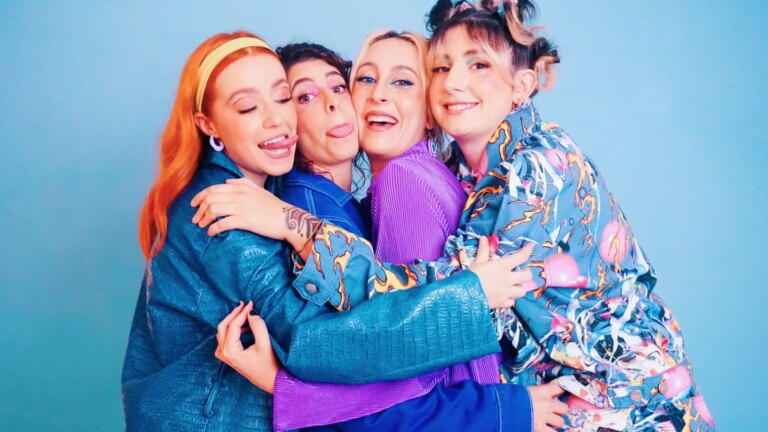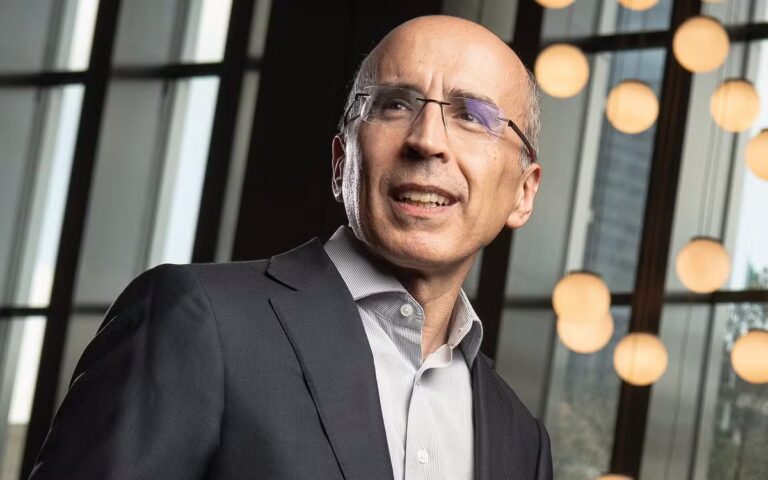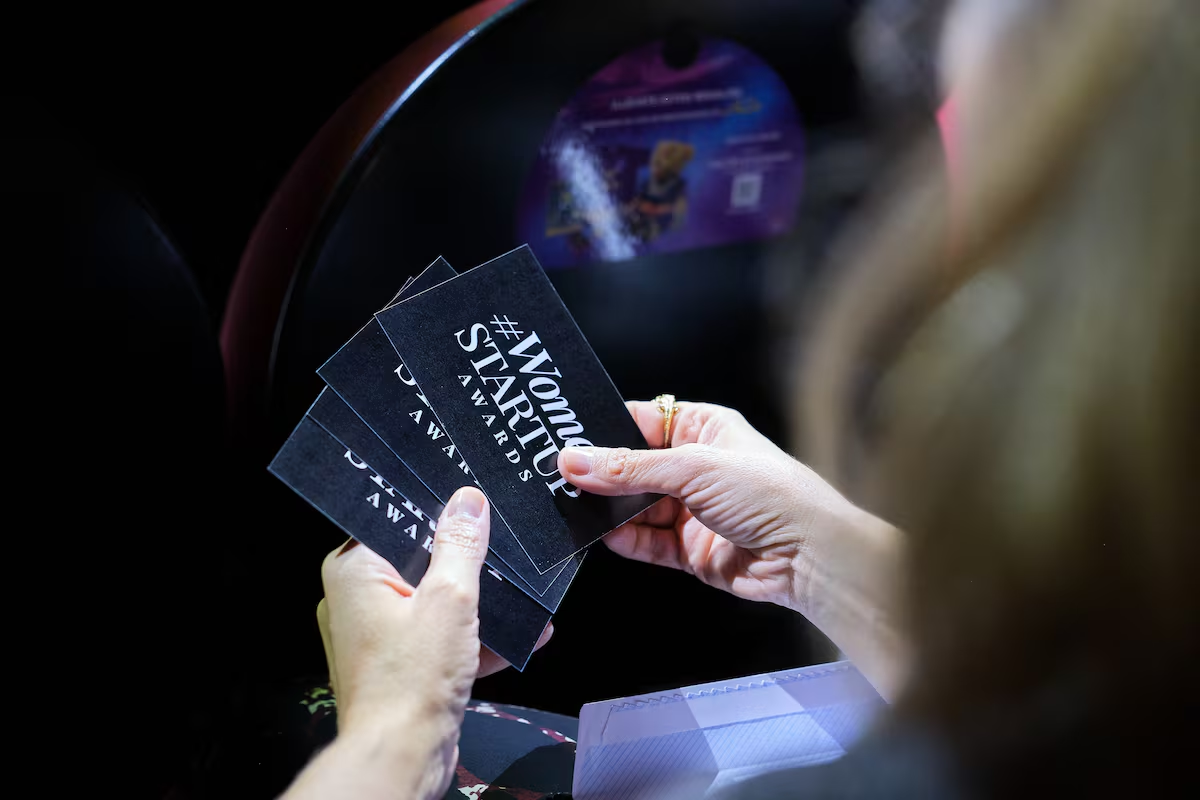
Biomedical engineer Blanca Travesi was lucky enough to have an unusual experience while working on her final degree project. By developing practical research (in her case, a study on sleep quality in women with fibromyalgia treated with transcranial magnetic stimulation), she was able to collaborate with patients and validate the real, direct impact of her efforts. The process was more human than most academic research, and it made me think about all the students who haven’t been able to apply what they’ve learned at TFG or TFM to a concrete context. If she proved how university research can improve people’s lives, why do so many other studies with potential end up forgotten in random drawers?
His partner Manuel Dokabo had a similar experience with his TFG, focusing on designing spare parts for water pumps in Benin to extend the service life of wells. When given the opportunity to orient themselves around real needs, they realized that their university projects had transformative potential. The idea for U4Impact was born out of a coincidence of his and Trabesi’s views. It is a platform that connects university talent with businesses, governments, and foundations seeking innovative solutions to challenges.
According to their memories, Spain is the country in the European Union with the third highest number of unemployed graduates, and at the same time almost half of companies claim that they have difficulty finding qualified personnel. U4Impact was born precisely to close this distance, turning TFG and TFM into impactful projects developed with the support of academic leaders and the direct involvement of those who need new ideas to overcome challenges. They move between disciplines such as engineering, digitalization and innovation, among others. business and marketing. and work and social education.
Today, that first effort has become a network that connects hundreds of young people with organizations across the country. This journey led Trabesi to be selected as one of the finalists for the IV edition of the Women Startup Awards, which annually recognizes female talent in the entrepreneurial ecosystem. “There were a lot of female talents working, but very little visibility, so we wanted to change that narrative by creating a space for celebration rather than just condemnation,” says organizer Elena Vienes.
Promoted by the Spanish Startup Association and the Yellow Agency, these awards were born with the clear mission of making visible women leading change in fields where they remain underrepresented. Because while the growth of technology entrepreneurship in Spain continues, there is no denying that the numbers show a clear imbalance between men and women in the creation of start-ups. That’s why prizes are sought after. make noise or Let’s lead the way and build more references for the girls and young women who come after us. “Furthermore, we hope that the stories of our winners continue to inspire and serve as a mirror for other women,” adds Vienes, who believes visibility is the first step towards structural change.
Entrepreneurship with a gender gap
Despite progress, starting a business remains difficult for women. The numbers bear this out – just 10% startup According to the Entrepreneurship Map of South Summit and IE University, companies in Spain are founded by them, and this is confirmed by the protagonists. “There’s a lack of references and a support network,” Travesi sums up, recalling a time when she “had to explain a business model to a room where it was still amazing to see a woman in charge.”
Nera González, head of Technovation Girls, has its roots in education. “Girls grow up thinking math is too difficult and not for them, which means fewer women in tech and, eventually, fewer leaders.” Nerea Luis, co-founder of Lumi Labs, also warns that bias persists even in the most innovative environments. “Technology is not neutral, and entrepreneurship is not neutral. If teams are not diverse, solutions are not neutral.” The three are among the finalists of this edition of the Women Startup Awards, which will be presented on November 17th at Teatro Lucana in Madrid.
Maria Bendumea, president of South Summit, agrees that the challenge is no longer with talent, but with the structure that encompasses it. “Although the Spanish entrepreneurial ecosystem is evolving towards greater diversity, the data still reflects disparities,” she noted in a previous conversation with EL PAÍS. She also believes that equality is achieved through a real change of spirit, not symbolic gestures. “Women’s leadership must be normalized in classrooms, boardrooms, investing, and media coverage.” Awards like the Women Startup Awards point in that direction, and are not intended to create a separate category, and one day, Vienes says, “we won’t need awards because equality is finally a reality.” And he pointed to a clear trend: “Large companies, accelerators and investors are now consciously trying to integrate female leadership. There is still a long way to go, but it is no longer perceived as a symbolic gesture, but as a real competitive advantage.”
Travesi, González, and Ruiz represent three different ways of understanding entrepreneurship, all with the same commonality: the belief that education can and should be a force for change. Travesi did this by bringing universities and businesses together to ensure that academic research was not left blank. Gonzalez inspires technical careers among girls and teenagers who never dreamed they would become programmers. And Lewis is building a bridge between artificial intelligence and the classroom to make technology less of a mystery. Three trajectories show that entrepreneurship can also be a means of education.
Academic research with practical applications
When Trabesi talks about U4Impact, he does it with the quiet pride of someone who has seen his idea grow faster than he expected. What started as a personal intuition today connects thousands of students with organizations seeking real solutions. “Young people don’t want to be limited to internships. They want to contribute and feel useful, and organizations need that fresh talent to innovate,” he explains. This platform is a bridge where both sides meet. Students apply their knowledge to projects of real scope. They are doing well (their work average is currently 8.9). And companies benefit from new ideas that they may eventually adopt.
This model may be simple, but its scope is not. Since its creation, thanks to its agreements with more than 60 universities across Spain, U4Impact has facilitated more than 500 jobs (between TFG and TFM) and “over 150,000 hours of labor have been dedicated to contributing to the SDGs”. Each case addresses a different and specific need, such as reducing food waste, designing environmental measurement systems, improving health care, seeking comprehensive digital solutions, and more. others. And many more. “We wanted to prove that young talent is not just a resource to be trained, but a force for change in its own right,” says Travesi. His manner of speaking is both gentle and passionate, making it clear that there is more than business behind his ventures – deep educational beliefs that are connected to his own experiences.
“For the first few months, I had to explain the project in an environment where no one expected a young woman to lead a university innovation initiative,” she recalls. The constant exposure forced her to not only stay safe, but also to redefine her role, not only as an entrepreneur, but also as an intermediary between worlds with which she rarely interacts. That is why he argues that education, more than context, is the essence of the project. “U4Impact not only helps young people take their first steps into the workplace, but also encourages them to look at problems from outside the classroom and understand that their knowledge has value when it helps others.”
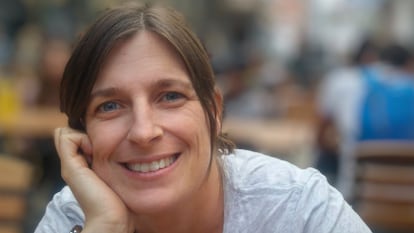
When a girl realized she could program
Nela González likes to say: technology girls We don’t teach you how to program, we teach you how to see the world differently. From Power to Code, the organization that coordinates the program in Spain, leads an effort that brings together thousands of girls between the ages of 8 and 18 each year to design applications that have a social impact, even if they don’t care about the end result. “Our products are not apps or projects, they are girls,” she says with a smile.
Therefore, over the course of 12 weeks, participants learn how to identify problems in their environment and create technical solutions as a team, always guided by volunteer mentors. “You have to learn by doing. You can’t love what you don’t know,” reiterates Gonzalez, who believes the first step to closing the gender gap in technology is providing early experiences of discovery and purpose.
The initiative is free and open to all types of profiles, and has grown to over 1,500 participants in Madrid alone. In it, the girls tackle themes such as loneliness and mental health in the elderly, and in doing so learn more than just programming. “Understanding that technology can help improve the lives of others unleashes creativity,” she says. Therefore, what begins as a game often becomes a profession. “They see themselves as empowered to use technology (…) and in the next year they may participate in other programs, camps, scholarships, so you can see how that seed germinates.” In a field where only 13% of the profession is female. technology girls This work shows that change begins in the classroom, with a girl discovering that she, too, can program.
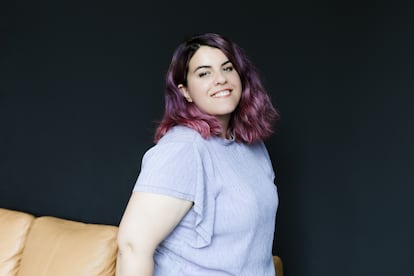
Algorithmic ethics starts in the classroom
Nerea Luis, a PhD in computer science and co-founder of Lumi Labs, has been working for years to make artificial intelligence look less like magic. His company develops AI solutions with an ethical and educational approach, working with educational centers, universities, and organizations seeking to better understand this technology. “AI doesn’t have to be a black box. We have to teach people how it works so they can trust it,” he explains. His vision includes digital literacy that is not limited to the use of tools, but rather teaches how to think. “It’s not just about using ChatGPT (or any other program), it’s about understanding what’s behind it and how it can help you think better.”
Lewis combines outreach, consulting, and education with a common thread: making technology more understandable, accessible, and equitable. “Artificial intelligence doesn’t have to be a black box. We have to teach people how it works so they can trust it,” he warns. In his workshops and talks, he also argues that future professionals need to learn to ask themselves questions about the biases, influences, and consequences of what they create. “Digital literacy in the 21st century is not just about programming, it’s about understanding how our decisions impact the systems we design,” he adds. And in that critical and pedagogical perspective lies the essence of his project of artificial intelligence in the service of consciousness and knowledge.


